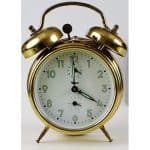Form:be about + infinitive The infinitive = "to" + the base form of a verb. Meaning:To describe something that we expect to happen very soon.It refers to the immediate future. Examples: The bus is about to leave.(The bus is going to leave very soon.) Manager: The meeting is about to start. Where is everyone? Jane: Could you help me with the sales … [Read more...] about Meaning of “be about to do something”
Use and meaning of ALREADY
“already” is an adverb of time. It has 2 meanings. Let's look at each meaning in more detail. Meaning 1 of "already" We use "already" to indicate that something has happened before the moment of speaking. Examples: Teacher: Do you need any help with the exercises?Student: No thanks. I have already finished. Jane: Tell the children to tidy their rooms.Mark: … [Read more...] about Use and meaning of ALREADY
Meaning and use of STILL in English
What is the meaning of "still" in English? What is the difference between "still" and "yet"? - This English lesson answers both of those questions. "still" can be either an adjective or adverb. “still” as an adjective "still" describes something that is not moving. Something that is static and stays in the same position. Examples: Those children never stay … [Read more...] about Meaning and use of STILL in English
Use and meaning of YET
"yet" is an adverb.“yet” can also be a conjunction. Let's look at each one: “yet” as a conjunction A conjunction joins together phrases, clauses or sentences.“yet” as a conjunction means ‘but’ or ‘nevertheless’.It shows contrast with the first part of the sentence. Examples:Mark doesn't like Jane, yet he often talks to her.She is intelligent, yet she failed her … [Read more...] about Use and meaning of YET
Comparing things with “as”
Comparing things that are equal “as” + adjective + “as” Jane is as tall as John.(Jane and John are the same height) David is as intelligent as you.(David and you have the same level of intelligence.) My car is as nice as yours.(My car and your car are of the same quality.) Comparing things that are not equal “not as” + adjective + “as” Jane is not as … [Read more...] about Comparing things with “as”






